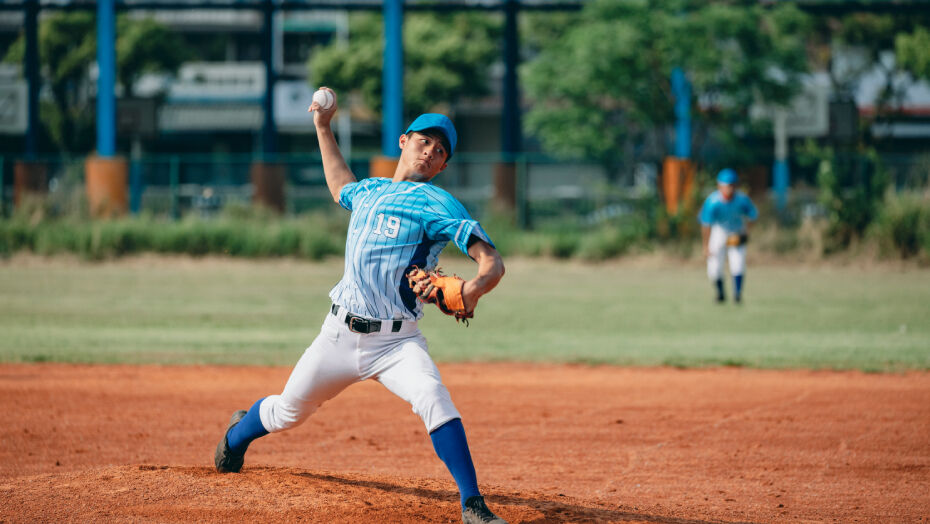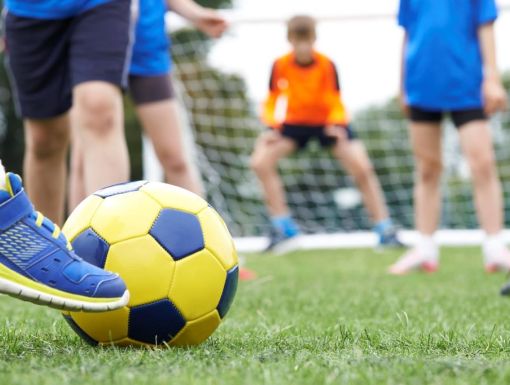
Why Does Single-Sport Specialization Lead to Youth Injuries?
Young athletes are facing a growing challenge: Sports-related injuries are happening more often than ever, due to single-sport specialization at an early age. Many kids now focus intensely on one sport year-round instead of rotating activities by season. That shift has led to a rise in both overuse and acute injuries, raising concern among parents, coaches and healthcare professionals.
Why does specializing in one sport increase injury risk?
Specialization exposes young athletes to repetitive stress before their bones, muscles and tendons are ready. The body needs variety, rest and recovery to grow stronger. When kids focus on a single set of movements year-round, their risk of overuse injuries and burnout climbs.
The American Academy of Pediatrics reports that high school athletes sustain nearly 2 million injuries each year, with many younger athletes also affected. Repetitive training without downtime is a major reason why.
Unlike professional athletes, children are still growing. Their musculoskeletal systems are in constant development, which makes them more vulnerable to breakdown under repetitive strain. Elite athletes often have entire medical teams supporting them, while young athletes do not. Without proper guidance, single-sport participation can turn a passion into a health setback.
What injuries are most common in single-sport athletes?
Overuse injuries caused by repeating the same motions are especially common among kids who specialize early. Examples include:
- Tendonitis in the knee or elbow
- Stress fractures in the foot, shin or spine
- Growth plate irritation or damage, which can affect long-term development
Sport-specific risks add to the problem. Baseball pitchers may develop shoulder and elbow issues from high pitch counts. Soccer and basketball players often face knee injuries, including ACL tears. Gymnasts and swimmers can suffer from wrist, back and shoulder pain.
Even recreational athletes are not immune. Club leagues and travel teams, which often compete year-round, expose children to the same injury risks as highly competitive programs.
What else makes single-sport specialization risky for kids?
Several pressures contribute to the injury trend:
- Early specialization: Focusing on one sport too soon exposes athletes to repetitive stress before the body is ready.
- Pressure to excel: The drive for scholarships or elite teams can push kids beyond healthy limits.
- Limited rest: Year-round training leaves little time for recovery.
- Narrow skill development: Fewer movement patterns mean weaker balance, coordination and resilience.
Specialization also narrows a child’s identity. If the sport becomes their sole focus, injuries can affect mental health as much as physical health. Athletes who cannot play due to injury may feel isolated or anxious, which further contributes to burnout.
How does growth and development affect single-sport athletes?
Growth spurts increase risk. Bones, muscles and tendons do not always develop at the same pace, creating imbalances that can lead to sprains, strains and stress fractures. For example, a young athlete who grows several inches in a few months may suddenly have knee pain because their quadriceps and hamstrings have not yet adapted.
Maturity levels also vary widely within teams, making some athletes more vulnerable than others. Coaches and parents should keep these differences in mind when setting expectations, assigning positions and planning training.
What are the best ways to prevent injuries from single-sport specialization?
Prevention starts with smarter planning and encouraging variety. Key strategies include:
- Building in rest days and off-seasons (at least one to two days off each week).
- Allowing kids to play multiple sports or cross-train with complementary activities.
- Teaching proper mechanics to reduce stress on joints.
- Prioritizing strength, mobility and balance, especially in the hips and core.
- Tracking training loads and limiting high-risk activities, such as excessive pitching.
- Encouraging athletes to report pain early before it becomes serious.
Parents play a critical role in setting boundaries. Saying no to a third league or scheduling breaks between seasons may feel counterintuitive in today’s competitive culture, but it is an effective way to protect long-term health.
What can elite athletes teach young athletes about variety and rest?
It may come as a surprise, but the vast majority of first-round draft picks in both Major League Baseball and the National Football League were multi-sport athletes in middle and high school. Competing in different sports helped them build well-rounded strength, reduce overuse stress and avoid burnout, all while improving coordination and adaptability.
Renowned orthopedic surgeon Dr. James Andrews has long cautioned against year-round baseball. He recommends that young pitchers and position players take at least three to four months off from baseball each year to allow their bodies the time they need to recover and grow. That same principle of intentional rest applies across all sports.
At Ochsner, we put these lessons into practice through our ACL Center of Excellence. Our specialists focus not only on surgical repair but also on prevention, using cutting-edge research to identify risk factors, teach safer movement mechanics and develop training programs that reduce ACL injuries before they happen. By promoting balanced training, multi-sport participation and intentional rest, we are working to protect athletes today while setting them up for long-term success.
What tools can help reduce risks for single-sport athletes?
Communities that adopt evidence-based tools see fewer injuries. Examples include:
- Pitch count and rest-day tracking apps
- Neuromuscular warm-up programs, such as FIFA 11+, proven to cut leg injuries
- Baseline movement screens to detect weaknesses before they cause problems
- Wearable devices to monitor workloads in sports like volleyball and basketball
These tools help shift training decisions from guesswork to data-driven insights.
When should an athlete see a doctor?
Seek medical evaluation if your child experiences severe pain, swelling, difficulty bearing weight or visible deformity. Ongoing pain, reduced performance or instability are also red flags. Sports medicine specialists understand the unique challenges of growing athletes and can guide recovery and safe return to play.
How can we build a healthier youth sports culture?
Progress requires shifting the focus from short-term performance to long-term health. Communities can:
- Encourage multi-sport participation through middle school.
- Adopt clear limits on training loads and game schedules.
- Provide ongoing education for coaches, parents and volunteers.
- Celebrate athletes for making healthy choices like resting or cross-training.
When health is prioritized, kids enjoy sports more, perform better and stay active longer.
Ochsner offers comprehensive sports medicine services and resources like Ochsner Performance Training to support young athletes. With expert care from orthopedic surgeons, physical therapists and sports medicine specialists, and our partnership with Elite Training Academy, Ochsner helps athletes recover, train safely and achieve long-term success. Learn more about the Ochsner–Andrews Sports Medicine Institute and schedule an appointment today.



